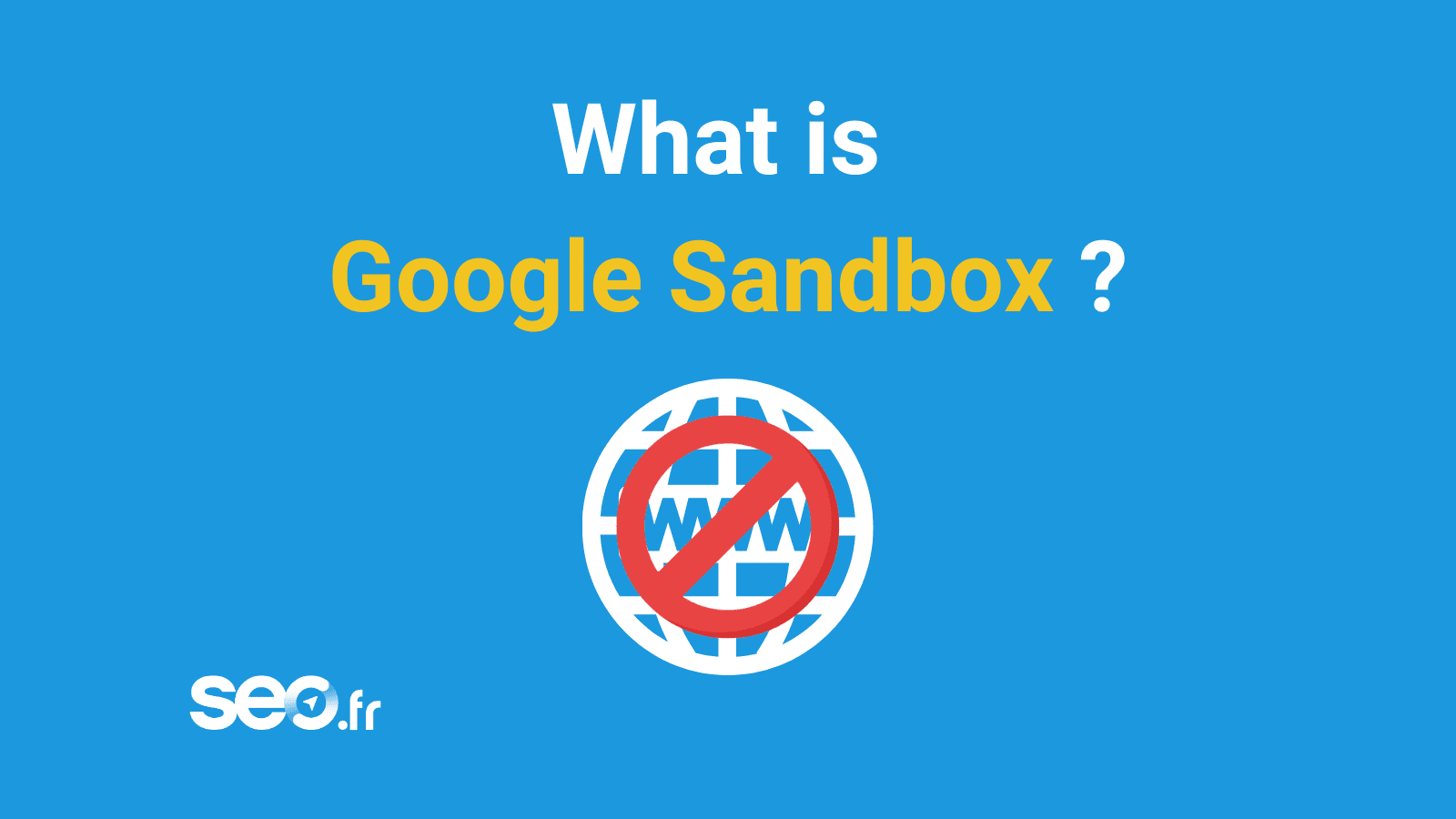Defending the end user is the great battle horse of all self-respecting search engines. It is the only policy that guarantees success in the long term. Webmasters who want to promote their sites at all costs sometimes pay the price.
You know very well that Google has all the power over its search engine.
But why Google is so mean?
The sandbox is a “punishment” inflicted by Google (and only Google, it seems), on sites that have used “dishonest” techniques to try to gain positions in the search results.
This “punishment” can apply to the whole site and to all the terms contained in these pages. It would be caused by abuse in relation to pagerank.
It can also be strictly specific to a word or expression that the site has ‘promoted’ a little too much (excessive repetition, for example). It would then be caused by abuse in relation to relevance.
Some assume that newer sites are systematically placed in the sandbox, which is a kind of purgatory until these sites have proven themselves. There are so many counter-examples that we strongly doubt this theory. Newer, over-optimised sites are probably – on the other hand – more likely to fall into the sandbox.

In any case, the consequence is a sudden drop in the position of the site concerned (or even a total disappearance) in the Google results. This effect can last from 4 to 30 weeks (although it is not clear why) and can last even longer if the site concerned continues to use “forbidden” strategies.
Everyone has a theory about the meaning of this penalty system. One can assume that it is intended to make it more difficult for Google to explore its “limits”. Does it accept 30, 40, 50 or 100 repetitions of a term before it drops the knife? Only successive tests could tell us!
By throwing your site into the sandbox, Google prevents you from trying to abuse it again (or rather, it prevents you from measuring its effects) for several weeks. But since the rules governing Google’s behaviour change regularly, it becomes impossible to draw reliable conclusions about what is legal or illegal unless you are prepared to sacrifice several sites for many weeks.
Another, simpler explanation is that Google is simply trying to “disgust” webmasters who engage in dubious practices. Spend your time improving quality, not looking for tricks, is the message that GoogleGuy and his successor Matt Cutt keep telling us.
WHEN IN DOUBT, ABSTAIN!
This is the policy to which webmasters must adhere! By working (almost) exclusively on the interest of your site for its visitors, by taking care of its navigational comfort, its clarity and its coherence, you will meet the objectives of the engines: to satisfy the Internet users. And you have every chance of obtaining a good overall rating from them!
In detail…
Things to avoid
We don’t have an exhaustive list of reasons why you might find yourself in the sand. But here are a few that have proven to be effective:
- Repeating a word or phrase too many times. This is true regardless of the area (meta tags, alt tags, text, etc.) where the repetition occurs. However, repetitions within text seem to be well tolerated when the word or phrase is mixed with non-repeating text (i.e. when used in a normal way!)
- Include text in the same colour as the background (white on white, black on black, etc.). This technique is used to add text to the page that is not visible to Internet users, but is recognised by search engines. Some believe that this technique is not a cause of sandboxing, but that Google attributes relevance to expressions in proportion to their contrast with the background. In any case: be careful!
- Make a farm-link on your site. Farm-links” are pages that consist solely of a large number of links to other sites that contain pages of the same type. The aim is to make intensive use of link exchange in an attempt to gain pagerank.
- Create a site with a huge amount of links pointing to it from the start. A fairly credible theory by Benjamin Tolman is that Google would penalise sites with suspicious “growth”. Clearly, Google must have found a tactic to discourage the buying and selling of backlinks (links from a high pagerank site pointing to the site being promoted). This false practice completely undermines the spirit of the web and undermines the reliability of search results.
- Set up a Google-bombing for the benefit of your site. If your site is optimised for the word “what’s-his-name” and several hundred sites point to yours with the word “what’s-his-name” in the text of their links, Google may smell a scam. The links that point to your site must absolutely have varied texts. So beware of automatic referencing that makes you run this risk.
- Make a site of 1000 pages, 999 of which are empty and orphaned pages (or full of bogus text) that point to a single page with content. If you have carefully read our page on pagerank, you will understand that this type of construction can artificially inflate the pagerank of a page. Google, not so crazy, may not appreciate the manoeuvre. Generally speaking, all kinds of satellite pages are dangerous.
- Having links that point to “dishonest” sites. (Tell me who you frequent and I’ll tell you who you are). This is one of the slightly “Big Brother” sides of Google that allows itself to judge you by your outbound links. If you have a really good reason to include this type of link, add the rel=”nofollow” argument in your links. For more information on this point, read our article on “Trustrank”.
- Practice dishonest cloaking or one of its variants.
SEO training?
Sylvain is here for you
16 years’ expertise in digital marketing

General:
- Design your pages for users, not for search engines. Don’t mislead users by displaying content for search engines that is different from what they are presented with (a technique called “cloaking”).
- Avoid ‘tricks’ designed to improve your site’s search engine ranking. In principle, you should be able to explain the solutions you have adopted to a competing website with confidence. You may also want to ask yourself: do these solutions help users? Would we have used these techniques if search engines did not exist?
- Do not participate in linking schemes designed to artificially improve your site’s PageRank. In particular, avoid linking to spammers or “questionable neighbours” on the Web, as these links may negatively affect your site’s ranking.
- Do not use unapproved programs to request indexing of your pages, check your ranking, etc. These programs consume computer resources unnecessarily and are generally in violation of our terms of service. Google does not recommend the use of products such as WebPosition GoldT, which send automatic or programmed queries to Google.
Specific advice:
- Avoid hidden text or links.
- Do not use cloaking or misleading redirects.
- N’envoyez pas de requêtes automatiques à Google.
- Do not send automatic queries to Google.
- Do not create multiple pages, subdomains or domains with largely identical content.
- Be sure to create pages that do not allow the installation of viruses, Trojan horses or other “badware”.
- Avoid satellite pages (“doorway”) pages created exclusively for search engines or other solutions such as affiliate programs without real information content.
- If your site is part of an affiliate programme, make sure it is useful to users. Present relevant and original content to encourage users to visit your site first.
If a site does not meet our quality guidelines, its inclusion in our index may be blocked. If you feel that your site does not meet these guidelines, you can modify it and bring it into compliance. Then you can apply for reinstatement.









